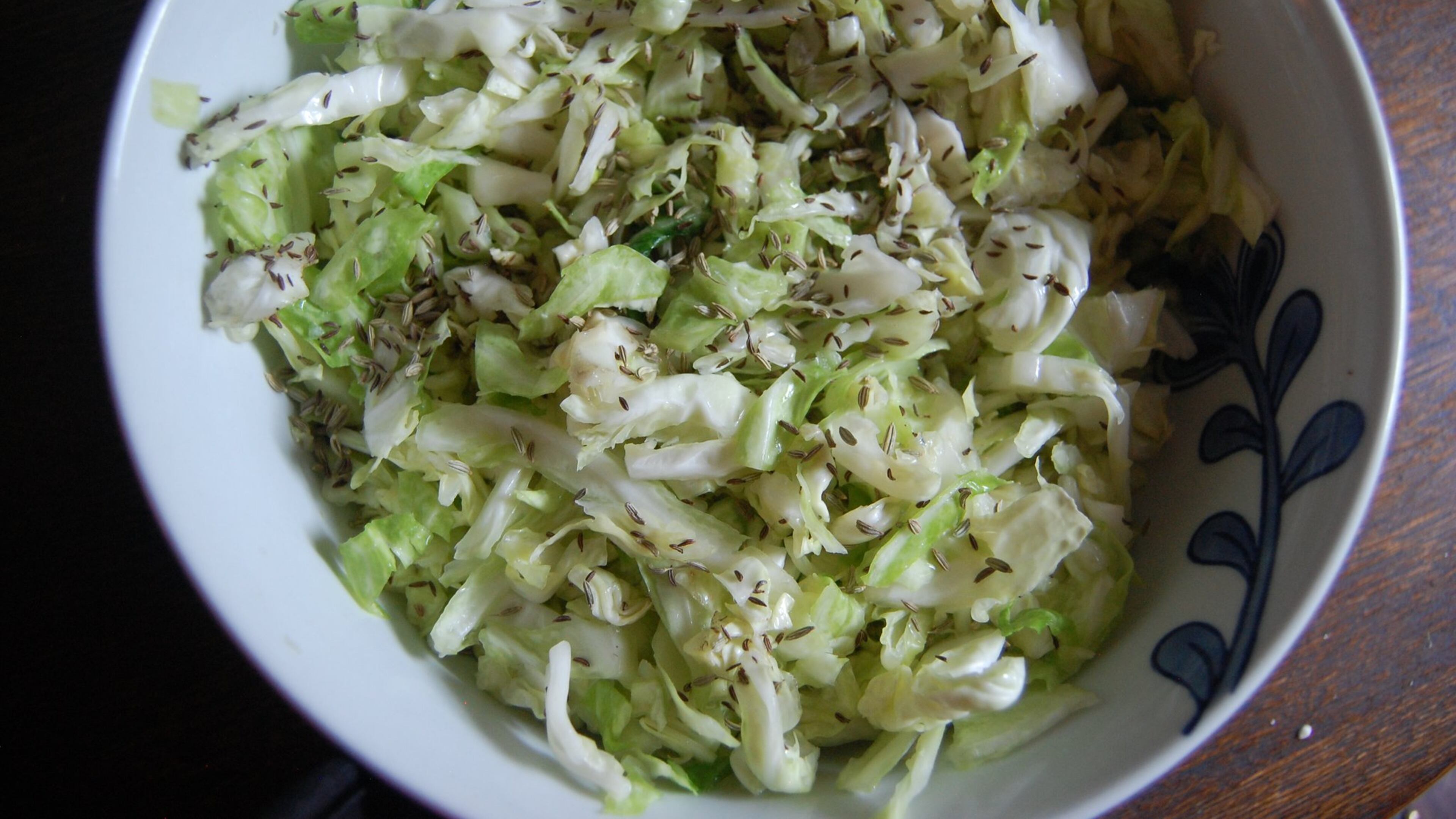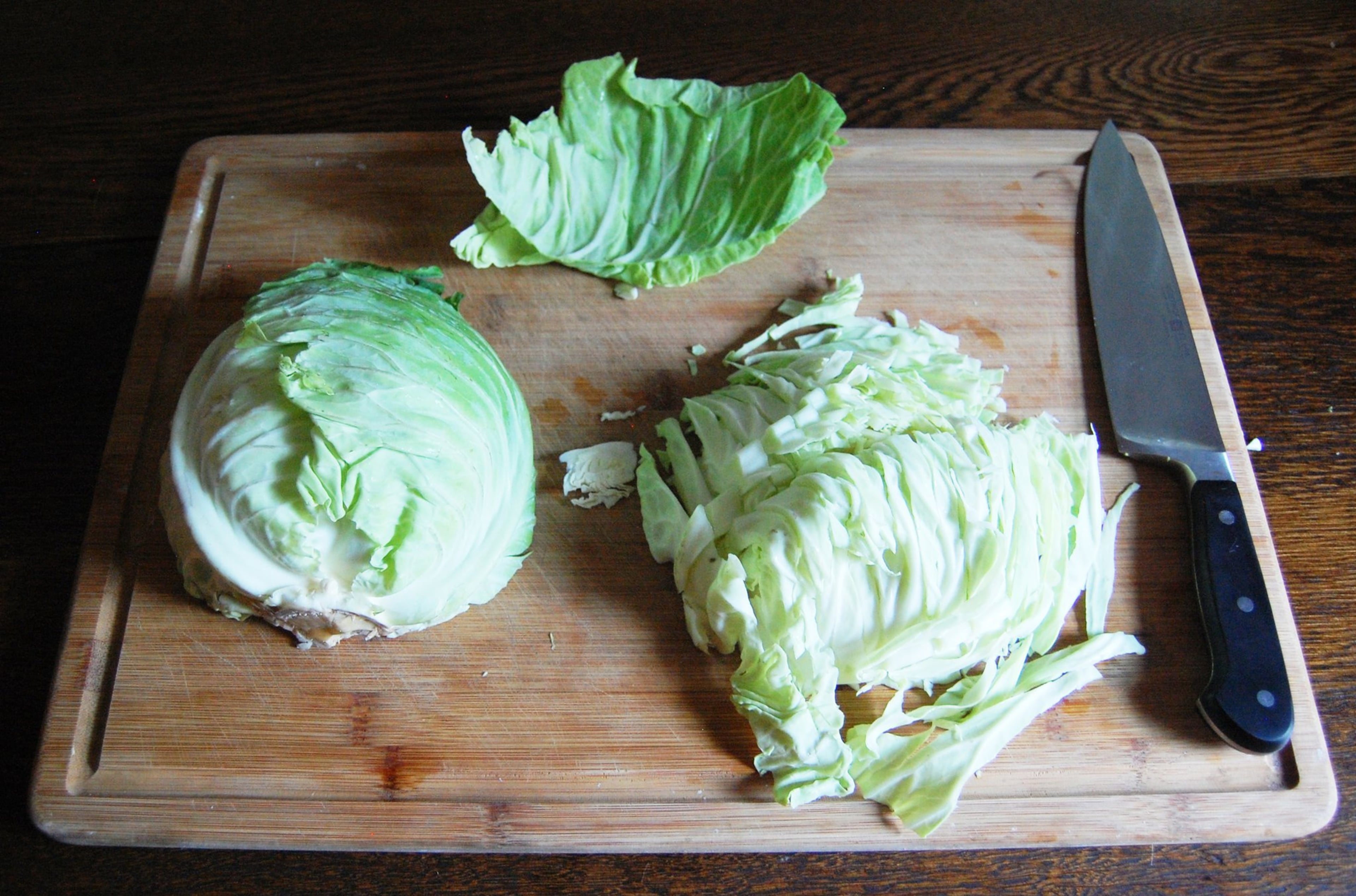Kitchen Curious: Sauerkraut is easy way to start your DIY fermentation journey

Last week, I shared with readers how a fermentation workshop organized in January by local fermentista Julia Skinner reignited my interest in DIY fermentation after a decade hiatus.
While my introduction to home fermentation project involved kefir, Skinner’s walk down microbe lane was by way of sauerkraut. It began 10 to 15 years ago while she was living in Iowa, and barely able to make ends meet.
“I was gardening a lot and also really broke,” she recalled. “Most of my food came from a food bank. I was on food stamps for a while. I started growing my food. I had to.”
Cabbages were among the crops she planted, and when they all matured at the same time, Skinner needed a solution to process the lot. She turned to her friends, many of whom grew up on farms and whose German backgrounds meant a knack for kraut. “I knew plenty of people who could make sauerkraut,” Skinner said. “I wasn’t able to stop after that.”
Skinner’s recipe for sauerkraut is simple. It requires just two ingredients — cabbage and salt — and time. A few weeks after you shred that brassica and pack it tightly into jars, you’ll have a tasty treat to top a brat or hot dog, stuff inside a Reuben sandwich, pair with pork or eat straight from the jar.
If you need a helping hand to get over a fear of fermentation, hit up one of Skinner's classes. Check out her website, root-kitchens.com, or sign up for her sauerkraut-making demo that will take place March 7 at the Edgewood Community Learning Center as part of programming for the Atlanta Science Festival, held this year March 6-21. For details or to register, visit atlantasciencefestival.org.

Sauerkraut
- 1 head cabbage
- 2 tablespoons fine grain sea salt or other unrefined salt
- 1/2 to 1 tablespoon whole or ground spices (such as caraway, fennel or juniper berries) (optional)
- Special equipment: Pint jars with lids and bands
- Wash jars, lids and bands with hot water and soap and set aside to dry.
- Remove the outer 2 layers of leaves from the cabbage and set aside.
- Quarter and core the cabbage. Thinly shred the cabbage. If desired, use a box grater to shred the core.
- Transfer the shredded cabbage to a bowl and sprinkle liberally with salt. Massage or pound the salt into the cabbage until the cabbage forms a brine. You’ll know it’s done when it releases liquid when squeezed. You can add hearty scraps (like grated carrot) to the shredded cabbage before massaging, or add delicate foods that might bruise (such as diced apple or berries) after massaging. Once the cabbage has been massaged, add the spices, if using, and stir well to combine.
- Pack the cabbage tightly into jars to minimize air bubbles. The cabbage should be completely covered with brine.
- Fold 1 of the reserved whole cabbage leaves in half, and continue to fold until it fits inside the jar. Set the folded leaf on top of the shredded cabbage, pushing it down so that the leaf is submerged in the brine. Repeat with the remaining whole cabbage leaf, placing that folded leaf in the other jar.
- Place the lids on the jars, screw on the bands and set the jars on a baking sheet or plate. Allow to ferment out of direct sunlight for 2-3 weeks (or longer) until it reaches desired flavor. Loosen the lid and check the ferment every day, adding more brine as needed. To make brine, combine 1 teaspoon salt and 2 cups room temperature water, stirring until the salt has dissolved. Do not use hot water or that will kill the bacteria that cause the fermentation process to happen. Makes about 2 pints.
Nutritional information
Per serving: Per serving (2 tablespoons): 4 calories (percent of calories from fat, 6), trace protein, trace carbohydrates, trace fiber, trace fat (no saturated fat), no cholesterol, 353 milligrams sodium.Recipe by Root Kitchen founder Julia Skinner. Printed with permission.
RELATED:
Read more stories like this by liking Atlanta Restaurant Scene on Facebook, following @ATLDiningNews on Twitter and @ajcdining on Instagram.


